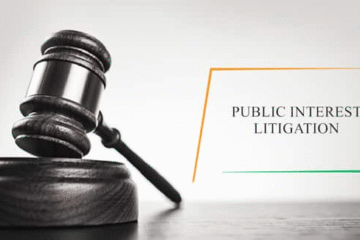
This article is written by Naveen Prabhat Singh of 1st Year of Bharati Vidyapeeth (Deemed to be University) New Law College, Pune, an intern under Legal Vidhiya
Abstract
Sovereign immunity, a foundational principle in public international law, denotes the immunity of states and their instrumentalities from being sued without their consent. This doctrine has evolved over centuries, balancing the need for accountability with the imperative of state sovereignty. This research article explores the historical development, theoretical underpinnings, and contemporary applications of sovereign immunity. Beginning with its roots in the absolute immunity of monarchs, the paper traces its progression through landmark legal cases and international agreements. It examines the tension between sovereignty and justice, highlighting debates surrounding exceptions to immunity, such as commercial activities and human rights violations.
Keywords
Doctrine of sovereign immunity, Peninsular and Oriental Steam Navigation Company V. Secretary of State for India, sovereign functions, non-sovereign functions, Absolute Sovereignty, Limited Sovereignty, No sovereignty, Immunity from suits, Immunity from Enforcements, Article 300 of Indian Constitution, Section 86 of CPC 1809.
Introduction
“By the law of the land, no sovereign can be sued in his own court without his consent” said Sir Edward Coke
John Austin in his book ‘Province of Jurisprudence’ has written that state is a sovereign entity and holds uncontrolled and unlimited sovereignty which shows absolute power of state. This concept is also known as Austin theory of sovereignty. The doctrine of sovereign immunity is a kind of extension of Austin theory of sovereignty as both of them reinforce the same idea. This is parallel to the organic perspective of state. But in the present context this concept of Sovereign immunity is quite different. With the advent of the British in India, new ideas, thoughts, culture and laws emerged and the Doctrine of Sovereign immunity is one of them. This is a common law concept based on British jurisprudence. The doctrine of Sovereign immunity is a legal doctrine based on the legal maxim rex non potest peccare meaning ‘the king can do no wrong’. This doctrine argues that the state is a sovereign entity hence can’t commit a legal wrong and is immune from both civil suit and criminal prosecution in its own court. This doctrine assumes that state is the authority which created courts and hence courts cannot compel the state as it is bound to obey the state and the main aim of its creation is protection of its subjects. The doctrine of sovereign immunity works as a shield for the government and protects from any liability. The main thing which is important for immunity is that the person or agent of the government must be working or performing the sovereign function of the state. For these sovereign functions the state is generally not answerable before the court of law for their performance.[1]
Historical Background
The evolution of Doctrine of Sovereign immunity can be traced back to Theory of organic perspective of state and Austin’s sovereignty theory but there is no direct relation found between them. In Modern days its evolution can be traced back to the leading case of Peninsular and Oriental Steam Navigation Company V. Secretary of State for India, in which Sir Barnes Peacock made clarity on the principle governing doctrine of sovereign immunity. In this case, the servant of the P&O Company was proceeding on a highway in Calcutta with a carriage which was drawn by a pair of horses belonging to the P&O Company. Then he met with an accident, caused by negligence of the servants of the government. For the injury caused due to negligence, P&O brought an action in the court of law for damages against the secretary of state for India. It was held that the East India company can be sued for the wrong of its servants in the course of transaction as a trading company. Therefore P&O Company was entitled to compensation by the East India Company. The doctrine of sovereign immunity was not applicable for the East India Company in this case. The company was made liable and therefore the secretary of state was also liable. This made distinction between sovereign and non-sovereign functions of state. This judgement of the Supreme court of Calcutta established that East India Company had a two hold character, i.e. 1. As a sovereign power and as a trading company. And then immunity is limited only for sovereign function not during commercial dealings.
Sovereign and Non-Sovereign Function
It is important to understand the difference between Sovereign and Non-Sovereign Function of state which decides the application Doctrine of sovereign immunity.
- Sovereign function- Sovereign function of state includes those functions for which state is not answerable before any court. These functions include Defence of the country, maintenance of armed forces, maintenance of peace, law and order in the country.
- Non-sovereign functions- Non-Sovereign function includes those functions for which the state is answerable before court. It includes all functions other than the sovereign function of state. [2]
Theories Regarding Doctrine of Sovereign Immunity
- The Absolute Theory-
According to the absolute theory of sovereign immunity, the defence of sovereignty immunity is available in all cases and the state and its agents are not subjected before any court for any wrong done by them. Its evolution can be traced back to the 18th and 19th century at that time since the role of sovereign states was purely administrative and political.
- The Theory of Limited Immunity
According to the theory of limited immunity, the state and its agencies are immune from liability for certain acts only. These certain acts include those acts for which the government has consented for being sued. This theory is based on the idea that a state can’t be sued without its consent and doing so will interfere with the effective governing of the government. The exceptions of this theory include waived off immunity, where the government is acting beyond its limits and an act of government which violated the rights of the citizens protected under law. Its evolution can be traced back to English law.
- Theory denying the existence of Sovereign immunity
According to Sir Hersch Lauterpacht, the doctrine of sovereign immunity has no sound basis in international law. The main reason behind this theory is that the importance is given to the individuals in international law. The rights provided to individuals are superior to any sovereignty and immunity of state. This challenged the traditional notion of sovereignty which argued sovereignty of state is indivisible and absolute. The idea of limited sovereignty and qualified sovereignty emerged from this theory.
Types of Sovereign Immunity
There are two types of Sovereign Immunity:
- Immunity from suits
Immunity from suit means that the government and its officials are immune from suits without their consent. It ensures that the government and its officials can only be sued in case of waiver of immunity. It also ensures that neither government or its officials nor any equivalent institutions are subject to any lawsuits in any court of law.
2. Immunity from Enforcement
Immunity from enforcement means that even if a lawsuit is successfully pursued in court and court has passed the judgement. The sovereign state and its officials hold power to stop the execution of the judgement and the person who won the lawsuit against the sovereign state can’t get any compensation and make them liable.
Legal Basis of Doctrine of Sovereign Immunity
The Indian constitution does not address the concept of Doctrine of Sovereign Immunity. But there are some statutes, articles, constitutional provisions, judicial interpretation and other common law principles which recognise the Doctrine of Sovereign Immunity.
- As per Article 300 of the Indian Constitution, “The Government of India may sue or be sued by the name of the Union of India and the Government of a State may sue or be sued by the name of the State and may, subject to any provisions which may be made by Act of Parliament or of the Legislature of such State enacted by virtue of powers conferred by this Constitution, sue to be used in relation to their respective affairs in the like cases as the Dominion of India and the corresponding Provinces or the corresponding Indian States might have sued or been sued if this Constitution had not been enacted.” This article contradicts the Doctrine of Sovereign Immunity and establishes the uniform Rule of law and enforces the idea that no one is above law.[3]
- According to Section 86 of the Code of Civil Procedure, 1908, “No foreign State may be sued in any Court otherwise competent to try the suit except with the consent of the Central Government certified in writing by a Secretary to that Government.” This statute gives immunity to the foreign state from any court. A foreign state can only be sued if the central government consents, “certified in writing by a secretary to that government”. Hence, prior written consent from the government is necessary. Section 87A of the Code clarifies that a “foreign state” is any state recognised by the Government of India situated outside the territory of India.[4]
Indian courts apply the relevance of balancing sovereign immunity and with the need to ensure the justice for individuals seeking remedies for violations of their rights protected by law. They have interpreted the law in a manner that promotes justice and accountability while respecting the principles of sovereign immunity.[5]
Case Laws
- In the case of State of Punjab v. Sodhi Sukhdev Singh, the Supreme court of India clarified that Article 300 does not confer immunity on the state in contractual matters. The state is bound by its contracts like any other party, and individuals can sue the state in case of breach of contract.[6]
- In Nagendra Nath Bora v. Commissioner of Hills Division[7] and Appeals, the Supreme Court of India addressed the issue of Crown immunity under Article 300 of the Indian Constitution. The case concerned a claim for compensation against the government for wrongful detention. The Court ruled that while the Crown enjoyed immunity from suits in certain circumstances, this immunity was not absolute and was subject to limitations. It held that when the government’s actions were not in discharge of sovereign functions, but rather resembled those of a private individual, immunity could not be claimed. The decision underscored the principle that the government could be held liable for its actions, particularly when they infringed upon the rights of individuals. This case set a precedent for the application of governmental liability in India and established important principles regarding the scope of sovereign immunity under Article 300 of the Constitution.
- In case of Union of India v. McDonnell Douglas Corporation, a dispute between the Indian government and an American corporation. The Supreme Court held that Section 86 of the CPC applies to suits against foreign states, including claims arising out of commercial contracts. The Court emphasized that foreign states enjoy immunity from suit unless they have expressly waived such immunity or have engaged in commercial activities within India.[8]
- In the case of Secretary of State vs Cockraft, the plaintiff was injured when he was walking on a military road due to leaving a heap of gravel. The suit was brought by the plaintiff in the court of law for damages. The court held that maintenance of military roads is a sovereign function of the state and not a private function and the government is not liable to pay any damages. So, the government is immune from liability by taking defence of Sovereign immunity.[9]
Conclusion
The doctrine of sovereign immunity is the immunity granted to the state in course of performance of sovereign function of state. The idea of sovereign immunity is seen in the organic perspective of the state which states that God created the state and sent the king to rule the state and hence the king can do no wrong and he is not answerable to anyone except God. Austin’s theory of sovereignty also matches with the same theory. But the present-day doctrine of sovereign immunity was established by the British. The Doctrine of sovereign immunity is a common law principle evolved through judicial decisions. The court takes into consideration the type of function which the state is performing, that is sovereign or non-sovereign function while granting immunity to the state. There are three different theories related to the doctrine of sovereign immunity, Absolute Sovereignty, Limited Sovereignty and Non-existence of Sovereignty are examples of these theories. Article 300 of the Indian constitution, Section 86 of the Civil Procedure code 1809 and various judicial interpretations are there to understand the legality of Doctrine of Sovereign immunity although there is no explicit explanation of doctrine of sovereign immunity.
References
- 2 Frank Woolridge, THE NINETEENTH CENTURY DOCTRINE OF SOVEREIGN IMMUNITY AND THE IMPORTANCE OF THE GROWTH OF STATE TRADING 201 (1972)
- M.P Jain, Indian Constitutional Law with Constitutional Documents 2197 (2023)
- The Code of Civil Procedure 1908, Sec. 86, Act 5 of 1908
- Adv. Ishani Samajpati, Limits of sovereign immunity, iPleaders, 7.04.2024 03:10 PM https://blog.ipleaders.in/limits-sovereign-immunity/#:~:text=The%20concept%20of%20sovereign%20immunity%20is%20enshrined%20under%20Section%2086,be%20sued%20in%20any%20court
- State of Punjab v. Sodhi Sukhdev Singh, 1961 AIR 493 1961 SCR (2) 371
- Nagendra Nath Bora v. Commissioner of Hills Division, [1958] 1 S.C.R. 1240
- Union of India v. McDonnell Douglas Corporation, [1993] 2 Lloyd’s Rep. 48
- Secretary of State vs Cockraft, (1916) ILR 39 Mad 351
- [1] 2 Frank Woolridge, THE NINETEENTH CENTURY DOCTRINE OF SOVEREIGN IMMUNITY AND THE IMPORTANCE OF THE GROWTH OF STATE TRADING 201 (1972)
[2] M.P Jain, Indian Constitutional Law with Constitutional Documents 2197 (2023)
[3] Indian Constitution, Art.300, Clause 1
[4] The Code of Civil Procedure 1908, Sec. 86, Act 5 of 1908,
[5] Adv. Ishani Samajpati, Limits of sovereign immunity, iPleaders, 7.04.2024 03:10 PM https://blog.ipleaders.in/limits-sovereign-immunity/#:~:text=The%20concept%20of%20sovereign%20immunity%20is%20enshrined%20under%20Section%2086,be%20sued%20in%20any%20court.
[6] State of Punjab v. Sodhi Sukhdev Singh, 1961 AIR 493 1961 SCR (2) 371
[7] Nagendra Nath Bora v. Commissioner of Hills Division, [1958] 1 S.C.R. 1240
[8] Union of India v. McDonnell Douglas Corporation, [1993] 2 Lloyd’s Rep. 48
[9] Secretary of State vs Cockraft, (1916) ILR 39 Mad 351
Disclaimer: The materials provided herein are intended solely for informational purposes. Accessing or using the site or the materials does not establish an attorney-client relationship. The information presented on this site is not to be construed as legal or professional advice, and it should not be relied upon for such purposes or used as a substitute for advice from a licensed attorney in your state. Additionally, the viewpoint presented by the author is of a personal nature.




0 Comments